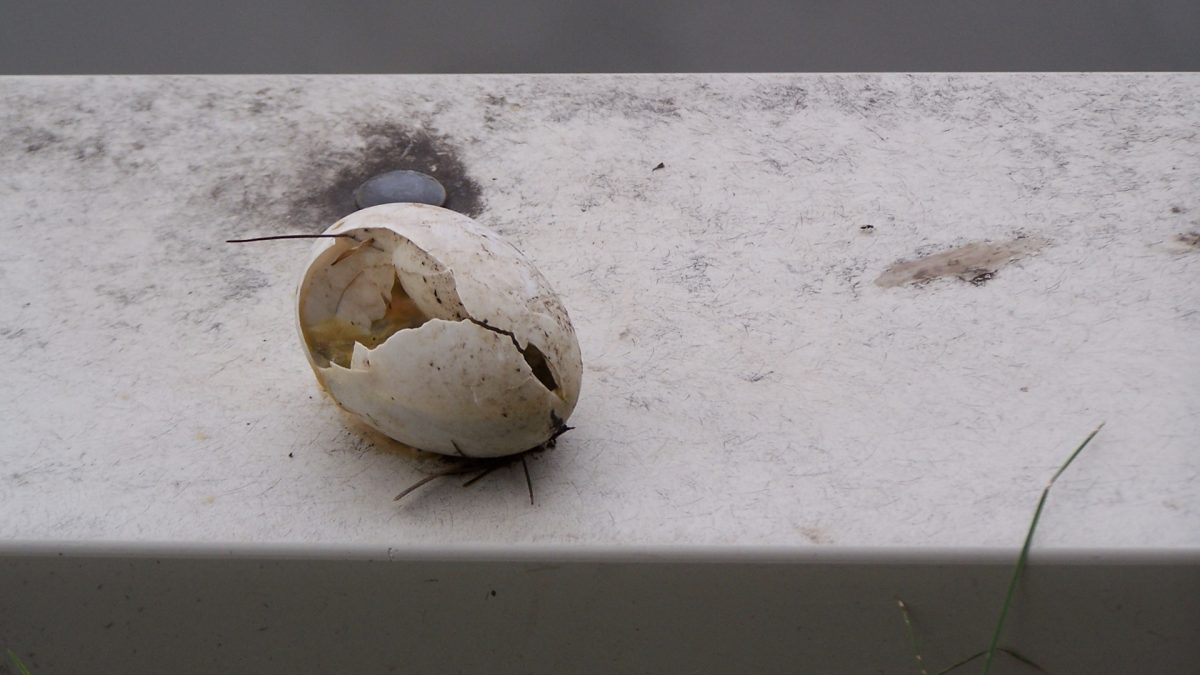Colon cancer is a leading cancer killer, yet there’s a paradox in Africa: Africans rarely get the disease, even in modern times when they are no longer eating their traditional whole food diet—that is, when they are no longer eating lots of fiber, fresh fruits, and vegetables. It is likely their continued low prevalence of colon cancer—50 times lower than ours—is related to their low intake of animal protein and fat, which I explored in my Solving a Colon Cancer Mystery video. But why would animal protein and fat increase cancer risk? Well, as I noted in my video Bowel Wars, if you eat egg whites, for example, about 5 to 35% of the protein isn’t digested and absorbed. Instead, it ends up in the colon, where it undergoes a process called putrefaction.
When animal protein putrefies in the gut, it can lead to the production of the rotten egg gas, hydrogen sulfide, which, in addition to its objectionable odor, can produce changes that increase cancer risk. Putrefying protein also produces ammonia.
Over a lifetime on a standard Western diet, the bacteria in our colon may release the amount of ammonia found in 1,000 gallons of Windex. At concentrations found day-to-day inside the colon on usual Western diets, ammonia destroys cells, alters DNA synthesis, increases cellular proliferation, may increase virus infections, and favors the growth of cancerous cells. The products of protein and fat digestion are to blame. We can double ammonia concentrations in the colon by eating a lot of meat.
However, if you put people on a plant-based diet, the enzyme activity that creates the ammonia in the colon drops like a rock within just one week.
Other bacterial enzymes are affected as well. For example, vegetables in the broccoli family can boost detoxifying enzymes in the liver. (See Prolonged Liver Function Enhancement from Broccoli for more on this.) These so-called phase 2 enzymes, UDP-glucuronosyltransferases, detoxify drugs and chemicals by applying a chemical straightjacket. They can deactivate the date rape drug GHB or take the carcinogens in meat, like benzopyrene, and render them harmless before dumping them back into the intestine for disposal. But, if our liver detoxifies it, why is benzopyrene in meat still associated with rectal cancer? Certain bacteria in our gut contain the opposite enzyme—that removes the straightjacket and frees the carcinogen to wreak a last bit of havoc before it leaves the body.
Within one week of eating plant-based, researchers found we can drop that enzyme activity in our colon by about 30%. But, this was with a raw, “extreme” vegan diet. What about a regular vegetarian diet? Compared to a pound-of-meat-a-day diet, those placed on a meat-free diet for one month experienced a 70% drop in “toxifying” activity. And, long-time vegetarians exhibit just a fraction of carcinogen-releasing activity compared to those on a standard American diet.
So, might this help explain the increased risk of colorectal cancer in the United States? Researchers put it to the test by taking biopsies from the lining of the colons of Americans versus Africans to measure cell proliferation rates, a marker for increased cancer risk and decreased cancer survival. As you can see in my Putrefying Protein and “Toxifying” Enzymes video, the researchers found proliferating cells throughout the colons of Caucasian-Americans and African-Americans, but only a few were seen in the African biopsies. The Africans had dramatically lower proliferation rates.
Overall, higher colorectal cancer risk was associated with “higher dietary intakes of animal products and higher colonic populations of potentially toxic hydrogen and secondary bile-salt-producing bacteria.”
And, while the researchers were getting the biopsies, they looked around a little: They detected only 4 problems out of the 18 African colons they looked at. Out of the 17 African-American and 17 Caucasian-American colons, however, they found 21 problems in each group, including polyps, diverticulosis, and lots of hemorrhoids. “The remarkably pristine condition of the colons in our African volunteers further supports our impression that [African] colons were, in general, far healthier than those of age-matched Americans.”
I encourage you to check out my Stool pH and Colon Cancer, How to Treat Kidney Stones with Diet, and Testing Your Diet with Pee & Purple Cabbage videos, which explain how we should strive to have an acidic environment in our colon (but alkaline in our kidneys).
For more on bowel health, see
- Diet and Hiatal Hernia
- How Many Bowel Movements Should You Have Every Day?
- Should You Sit, Squat, or Lean During a Bowel Movement?
- Diverticulosis: When Our Most Common Gut Disorder Hardly Existed
- Does Fiber Really Prevent Diverticulosis?
In health,
Michael Greger, M.D.
PS: If you haven’t yet, you can subscribe to my free videos here and watch my live, year-in-review presentations:
- 2012: Uprooting the Leading Causes of Death
- 2013: More Than an Apple a Day
- 2014: From Table to Able: Combating Disabling Diseases with Food
- 2015: Food as Medicine: Preventing and Treating the Most Dreaded Diseases with Diet
- 2016: How Not To Die: The Role of Diet in Preventing, Arresting, and Reversing Our Top 15 Killers
